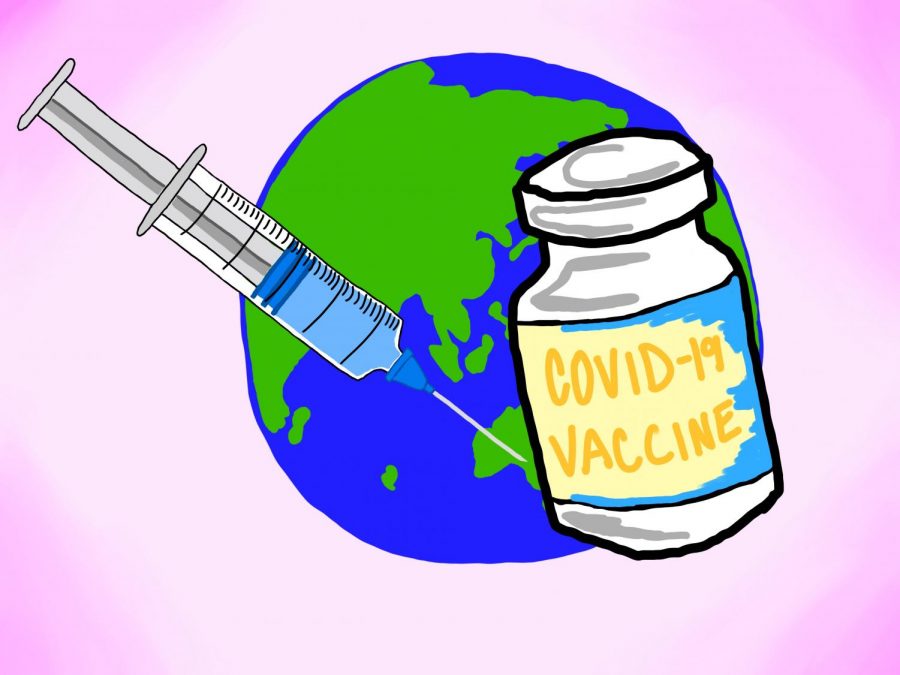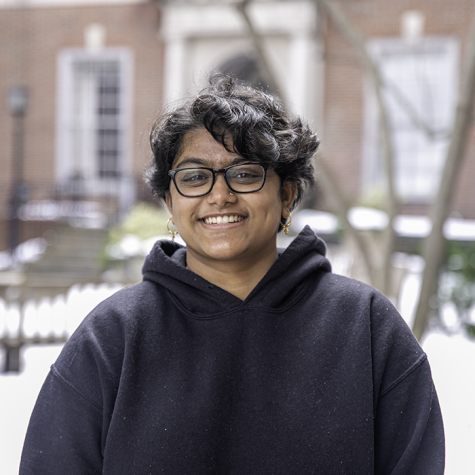Opinion: Mandatory vaccine policy for Fall 2021 overlooks international students
NYU administration has announced that all students must be vaccinated — with the exception of those unable to due to health and religious reasons — before returning to campus in the fall. How will this impact NYU’s international student body in the Global South?
NYU Senior Leadership has announced mandatory vaccinations for all students returning in-person for the Fall 2021 semester. This is expected to most negatively impact international students, who may come from countries with low vaccine availability. (Staff Illustration by Manasa Gudavalli)
April 26, 2021
On April 19, senior NYU administrators sent out an email notifying the student body that NYU students returning to the city must be vaccinated for the fall semester. NYU leadership is also expecting that this requirement will “extend to students who are planning on studying away this fall.” With NYU Abu Dhabi and NYU Shanghai expected to follow suit, it is likely that most, if not all, students will have to be vaccinated to attend in-person classes, be eligible for on-campus housing, and participate in any campus-based activities.
Fortunately, the university is accommodating those who are unable to get the vaccine due to religious and medical reasons. However, there are many unanswered questions about the new policy — most glaringly, how will this mandate accommodate students who are not from affluent Global North countries? In the email, the extent of NYU’s concern for international students is just that they are unsure of “which vaccinations received abroad will be recognized.” NYU fails to address those international students who do not have access to COVID-19 vaccines in their respective countries, and the university offers no solution.
According to NYU’s Office of Global Services 2019-2020 report, roughly 24% of the university’s international students are from countries considered to be in the Global South — Latin America, the Middle East, Central and South Asia, and Africa. For context, that’s more than 5,000 NYU students. Including other nations in Oceania, East Asia and Southeast Asia, there is a significant portion of NYU students who reside in nations with limited or no access to COVID-19 vaccines. Among the three most represented countries in the international student body is India — a country that is suffering through not only a nationwide vaccine shortage but a brutal second wave of COVID-19. Considering India alone, over 3,000 students might not have equitable access to vaccinations.
NYU administrators announced through an email in February that the fall semester is expected to be in-person, which is another problem for international students. Since classes and other operations are expected to be largely in person, remote learning will become increasingly difficult due to various global time zone differences, recording liabilities and unaccommodating professors. Ultimately, vaccine inequality also means that international students will not have equitable access to the education for which they are paying thousands of U.S. dollars.
Thus, NYU must offer its international students the opportunity to get vaccinated through the university come fall semester. Similar to the protocol for the previous fall semester, they should allow international students to arrive two weeks early to campus to quarantine. During that time, international students should receive testing and have guaranteed access to vaccinations through university health centers at no additional cost. Not only will this course of action ensure that NYU’s international students have equal access to their education, it will also permit NYU to actively take a stance against global vaccine inequality.
NYU repeatedly prides itself on its commitment to the university’s global community. This is one way that the university could prove that this commitment is more than words.
Opinions expressed on the editorial pages are not necessarily those of WSN, and our publication of opinions is not an endorsement of them.
A version of this article appeared in the Monday, Apr. 26, 2021 e-print edition. Email Srishti Bungle at [email protected].




























































































































































